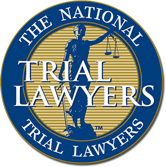
Insurance Bad Faith and Homeowners Insurance
- August 20 2018
- Insurance
Q: If my house burns down, what kind of behavior might constitute insurance bad faith from my fire insurance or homeowner’s insurance? Often insurance companies, after a loss like a house fire, will immediately offer a small sum of money, for example, $5,000 so you can go buy yourself some new clothes and get on […]













